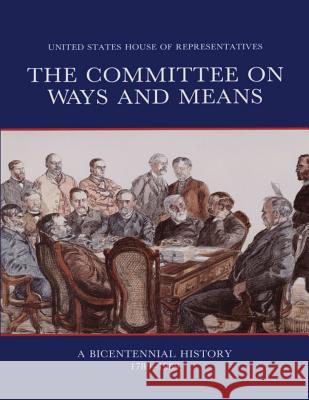The Committee on Ways and Means: A Bicentennial History 1789-1989 » książka
The Committee on Ways and Means: A Bicentennial History 1789-1989
ISBN-13: 9781477556733 / Angielski / Miękka / 2012 / 540 str.
0n July 24, 1989, the Committee on Ways and Means celebrates its bicentennial. The Committee on Ways and Means is the oldest committee of the Congress. Its history is a large part of our nation's history. The responsibilities vested in the committee have placed it at the center of some of the most critical legislative decisions faced by the Congress. The prestige accorded the committee is due in part, of course, to the breadth of its legislative jurisdiction: all revenues, the management of the public debt, tariff and trade laws, the Social Security and Medicare systems. These responsibilities alone would make it a committee of note. But just as important to its reputation has been the manner in which the members of the committee have exercised those responsibilities. One cannot read the history of the Committee on Ways and Means without recognizing the important role played by certain individuals at critical points in our nation's history. The history of the committee is replete with examples of legislators who, through the strength of their convictions, were able to lead the country in a direction it might not otherwise have gone. Examples include Gallatin, Randolph, Stevens, Underwood, Hull, Doughton, and Mills. Today we face enormous and seemingly permanent budget deficits the likes of which have never been seen in our history. This generation's unwillingness to pay for the government it demands means that future generations will be saddled with an intolerable debt burden. This situation did not begin in the 1980s, but it has increased dramatically during this period. What is disturbing is not so much the size of the debt; significant debts have accumulated in the past, especially in times of war. Much more troubling is our seeming inability to even debate, much less decide, on those changes necessary to reduce or eliminate the oppressive budget deficit. However, in the end it must be done or our nation will suffer the consequences. One can only wonder if this is not one of those critical periods when it is necessary to look beyond narrow parochial interest, a time when strong leadership is required. The future of our children and their children depends upon the leadership we exert today.
Zawartość książki może nie spełniać oczekiwań – reklamacje nie obejmują treści, która mogła nie być redakcyjnie ani merytorycznie opracowana.











